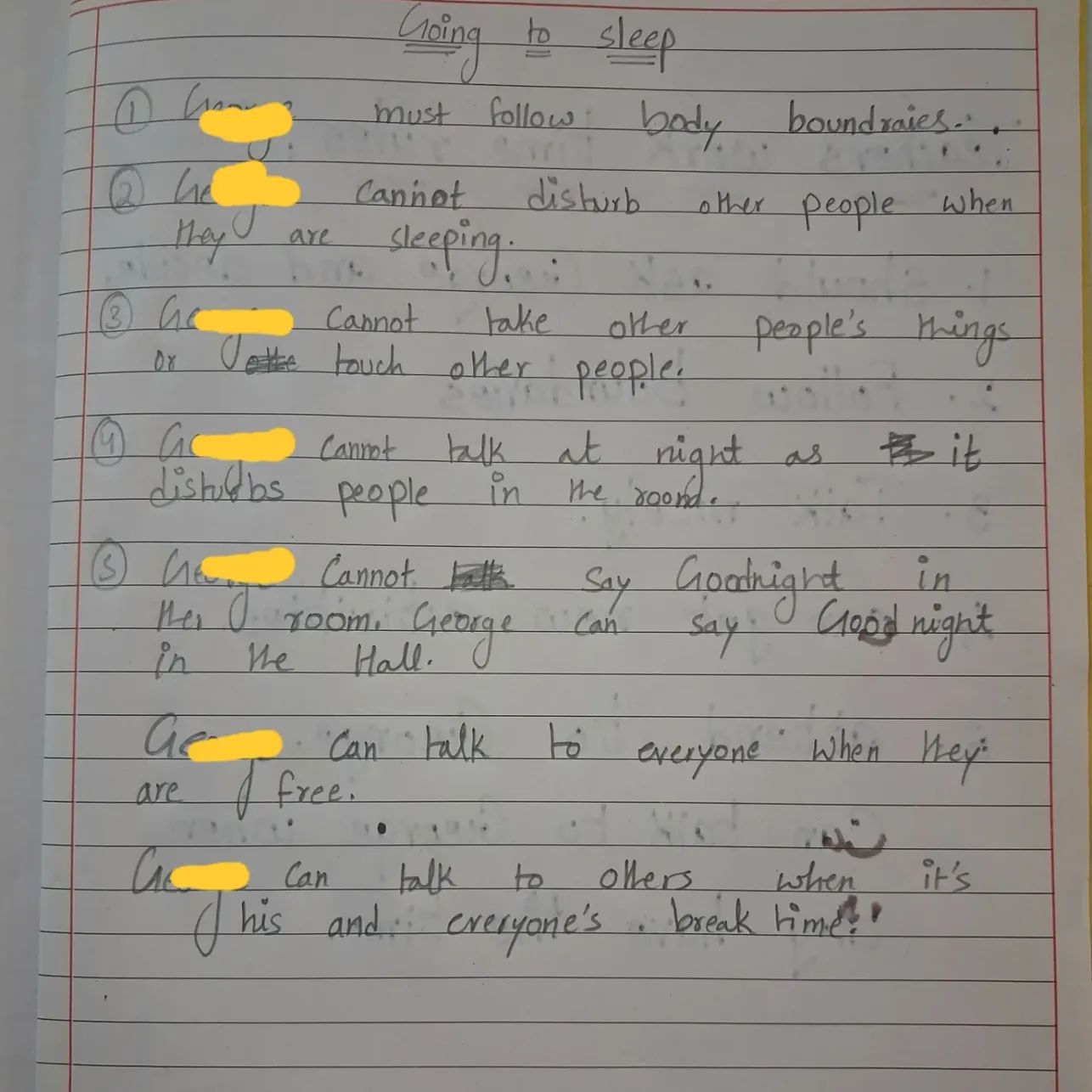Emotional Regulation and co-regulation
Learning to regulate self and help others
Emotional regulation is a vital life skill. When someone is overwhelmed, it’s not just hard for them—it’s challenging for those around them too. That’s why coregulation matters: being present with someone, calm and available, until things settle.
Last night, G, one of our 16-year-old neurodiverse students, was struggling to get to sleep. He pulled at his peers’ blankets and threatened to throw their things. Another student ran to me for help, but I was tied up with something urgent and couldn’t get there immediately.
That’s when A, 15, stepped in. He quietly asked G to step out of the room and sit with him. He brought G’s notebook, pointed to the sleep schedule, and gently reminded G it was time to rest. When G stayed restless, A didn’t give up. Instead, he wrote down clearly what G could do during sleep time—and what he couldn’t. Together, they read the list. G agreed. And that was it.

No drama. No bribes. No threats. Just calm, steady presence.
What A did is coregulation in action. For many parents, teachers, and caregivers, these moments are tough and often feel overwhelming. But here, a peer showed us all how powerful it can be just to stay beside someone and help them find calm—together.